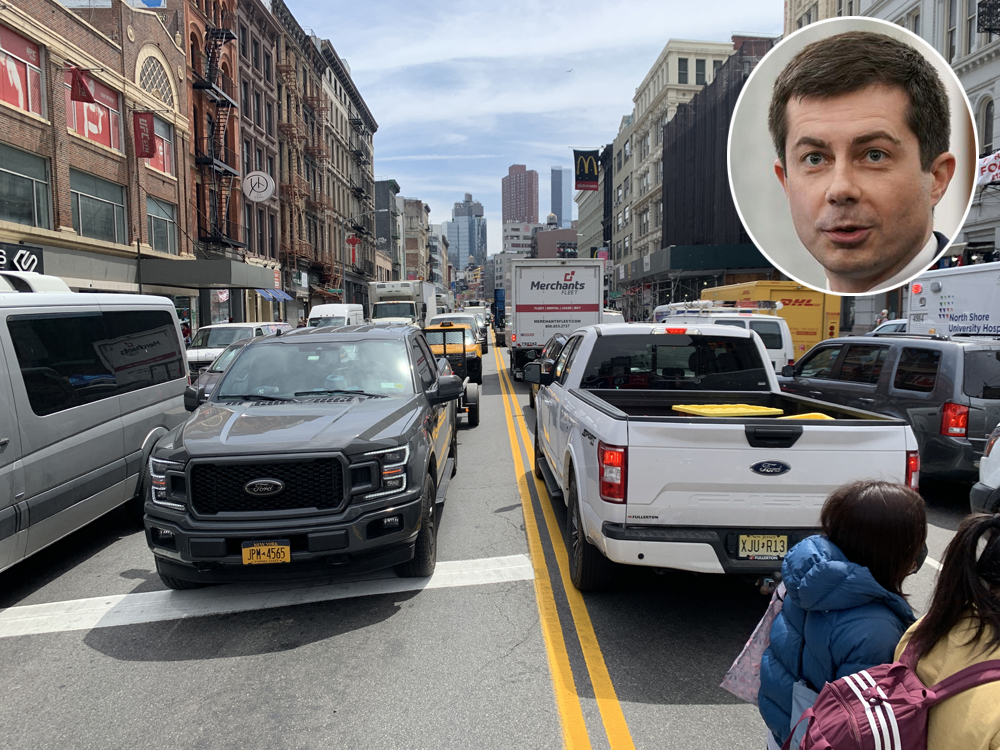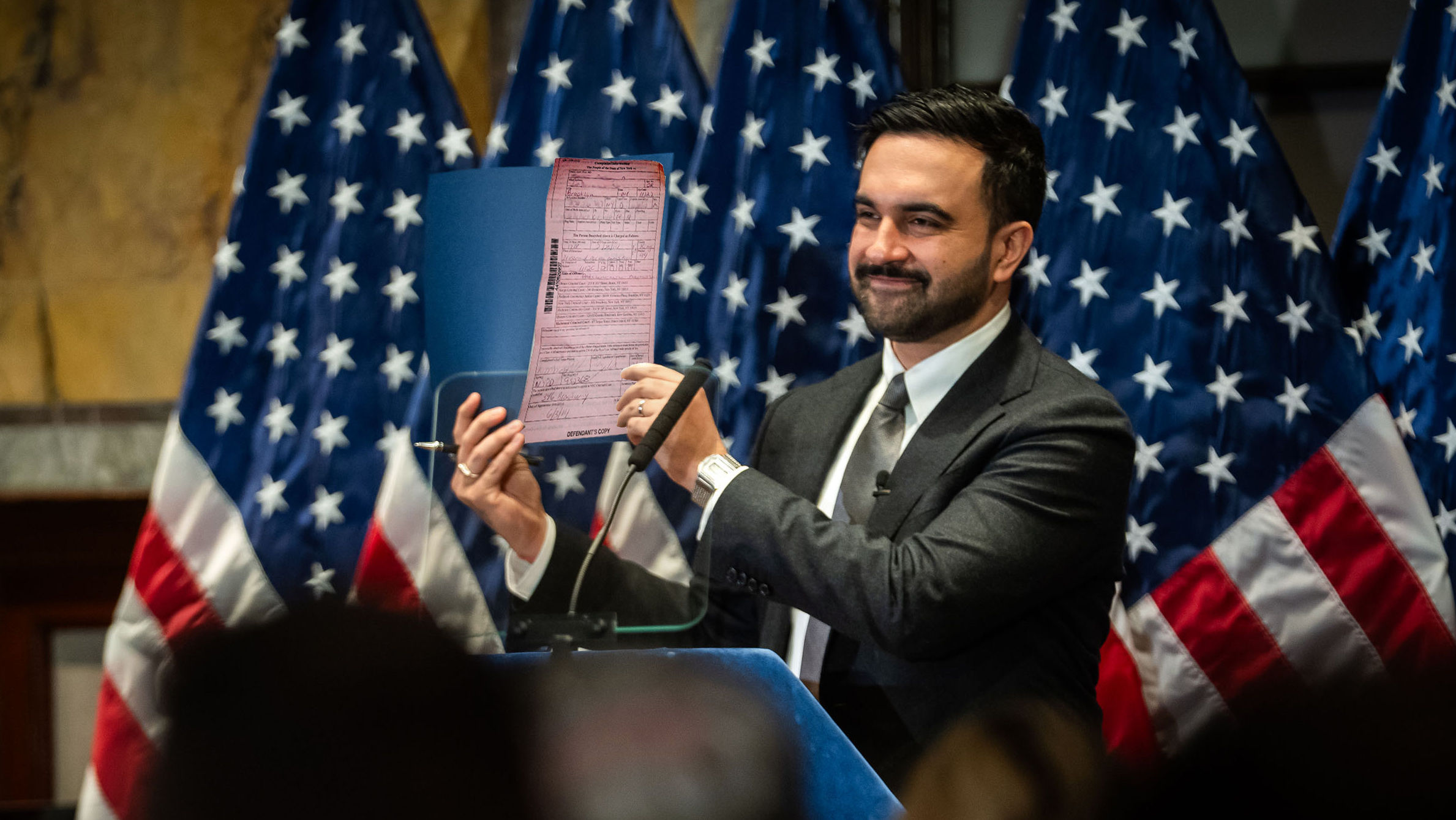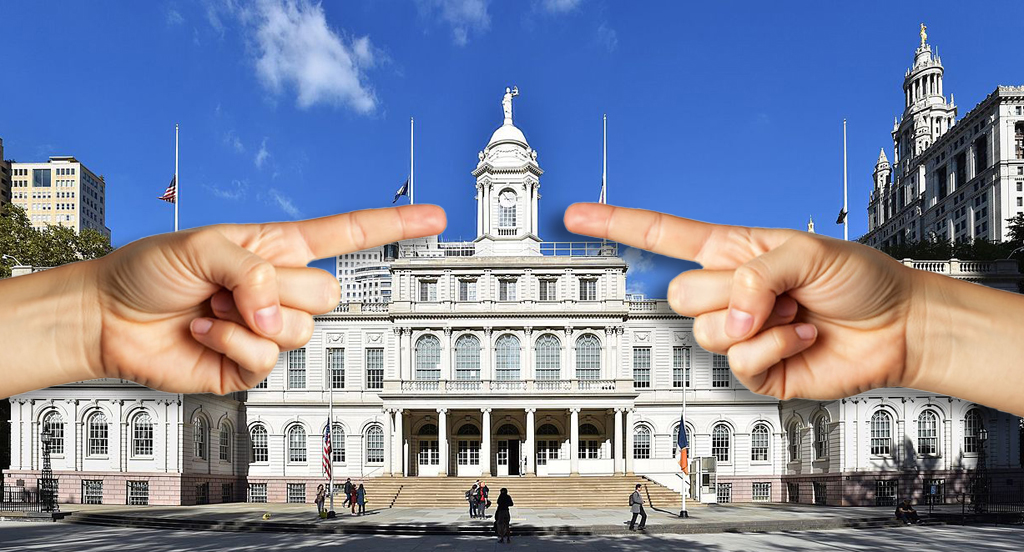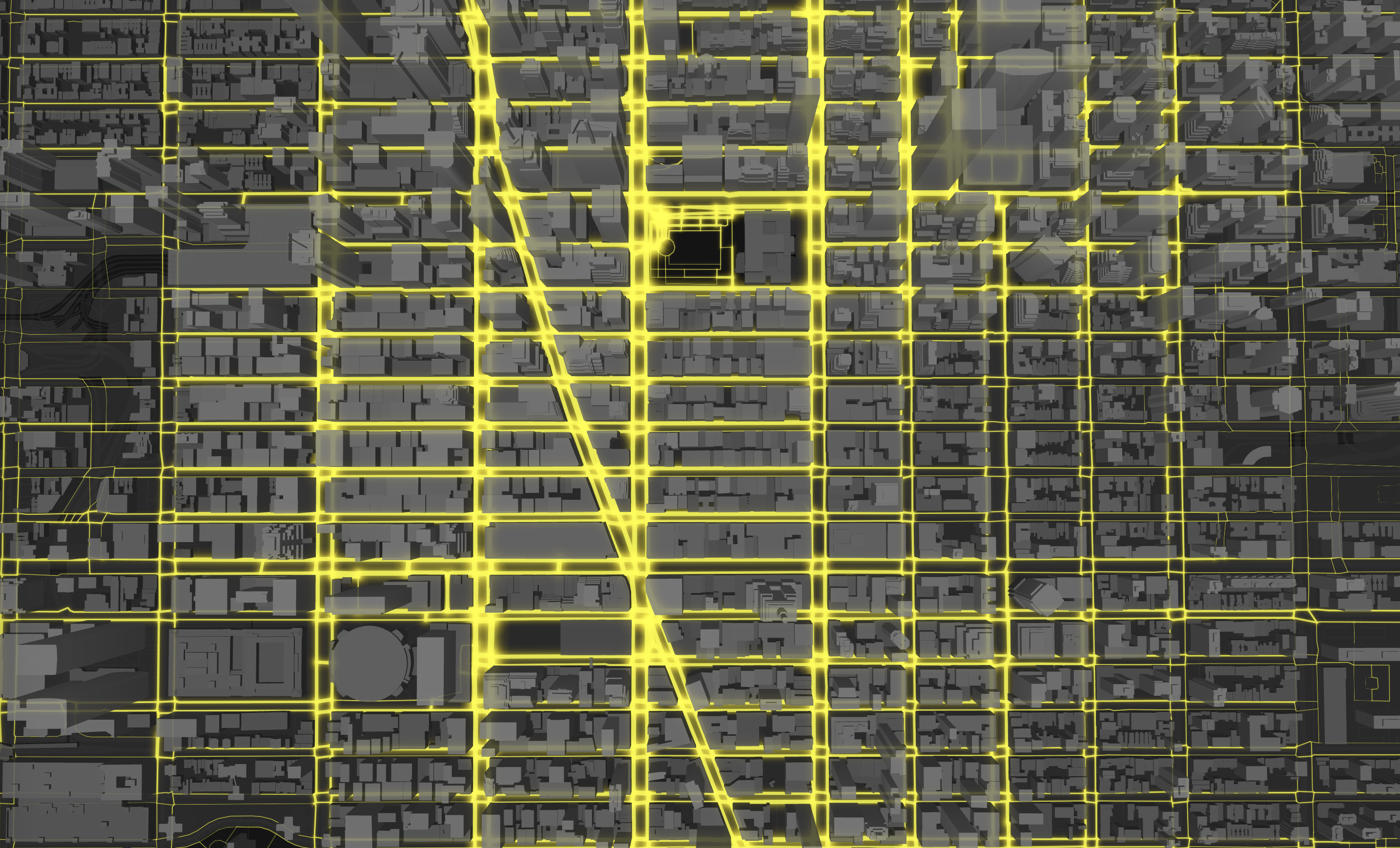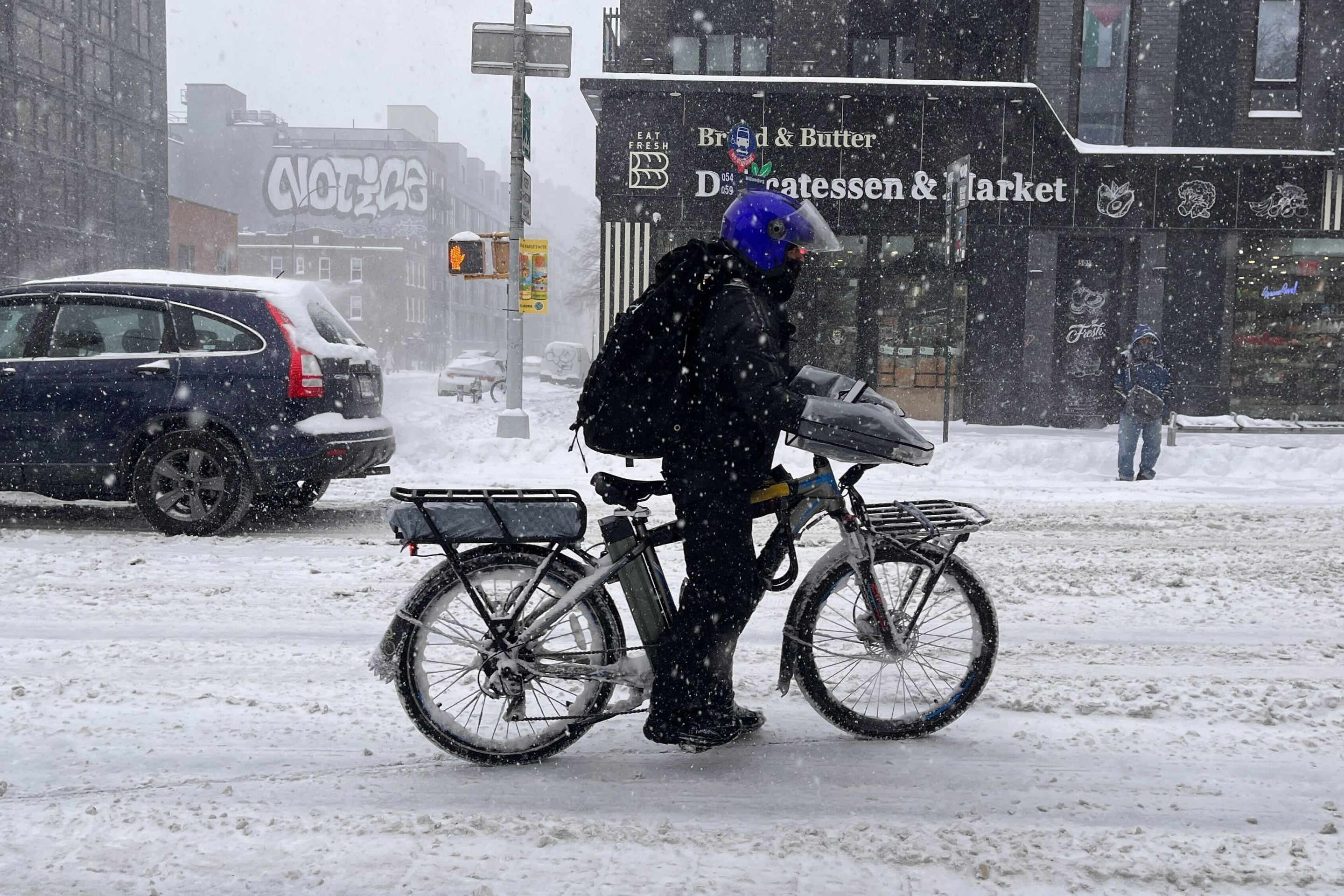The following letter was sent to U.S. Department of Transportation Secretary Pete Buttigieg last month in hopes of getting clarity about congestion pricing (Streetsblog has also reached out to the U.S. DOT to get more information). We present the April 27 letter today as an op-ed.
Secretary Pete Buttigieg
U.S. Department of Transportation
1200 New Jersey Ave, SE
Washington, DC 20590
Re: Please Expedite New York’s Congestion Pricing Program
Dear Secretary Buttigieg,
I write with two purposes, both of which pertain to your department’s oversight role in New York’s congestion pricing program.
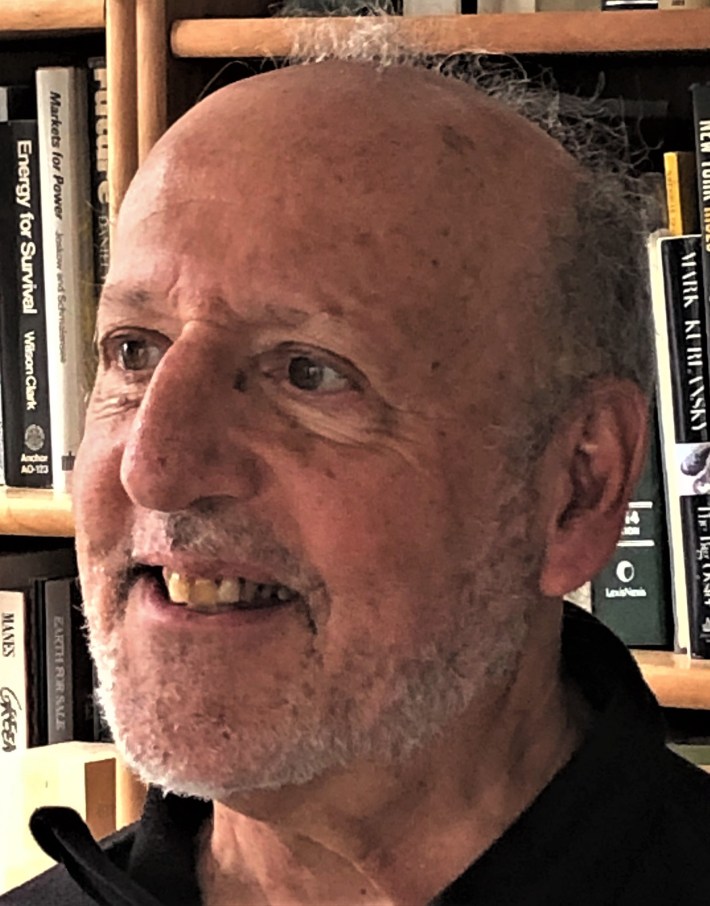
My first purpose is to ask you to forward me the entire set of 430 questions and comments that U.S. DOT’s Federal Highway Administration proffered to the Metropolitan Transportation Authority on March 11, as reported in an April 22 news story in the NY Daily News, "Feds send MTA 430 questions on plan for congestion pricing in NYC."
My other purpose is to register my dismay at the zealousness with which FHWA appears to be overseeing the review and approval of the program — as evidenced by the proffer just noted.
As you know, congestion pricing promises immense benefits to residents and workers in, and the economy of, New York City and the surrounding region, by reducing traffic volumes (thus saving daily hundreds of thousands of hours that are now lost in gridlock) and generating robust new revenues to improve public transportation. Using my traffic and economic model that the State of New York deployed in preliminarily evaluating congestion pricing from late 2017 to early 2019, I estimate that the net benefits from congestion pricing (monetized time savings + improved health + reduced emissions, less tolls + toll administration + unwanted mode shifts) will average more than $12 million per day.
In other words, each day congestion pricing is delayed costs New Yorkers $12 million worth of better commutes, safer streets and healthier air. Delay also keeps from Americans the opportunity to grasp the benefits to be had by smartly pricing “externality costs” — a paradigm that is sorely needed not just in urban transportation but in climate policy as well.
Why, then, is your FHWA needlessly prolonging the approval process through unnecessary proffers such as the one reported in The News?
Perhaps you will say it’s important “to get congestion pricing right.” I’m sorry to say that we don’t have the luxury of perfection. Each new delay — and remember, congestion pricing was approved by the state legislature more than three years ago — diminishes the prospects for implementing the program at all by making it appear that congestion pricing requires perfection. Which of course it does not. Congestion pricing is so well suited to New York, with our ever-present gridlock, our robust public transit, our affluent car-commuter base and our topologically ideal tolling zone, that the eventual plan need not be perfectly optimized in order to be marvelously effective and beneficial.
By what right, moreover, does the federal government, via a “highway” agency to boot, interfere in what is almost entirely a state and municipal affair? The vast majority of congestion tolls will be paid by New York residents: 65 percent by residents of the five boroughs, plus another 20 percent by residents of the seven other “MTA counties,” by my calculations, and doubtless a few percent more by upstaters. Does the 12 percent or so to be paid by residents of New Jersey and other neighboring states really warrant your agency’s full-court press? No more than does the fact that New Yorkers visiting the Bay Area pay a toll to drive on the San Francisco-Oakland Bay Bridge warrant review by FHWA.
My final point is intended personally, Mr. Secretary.
You ran for president in 2020 on a platform — a vision, really — of constructive political participation. Not unlike candidate and President John F. Kennedy six decades earlier, you inspired millions of Americans to believe that civic engagement would be rewarded with enlightened public policy and effective administration.
This is real failed-state type stuff. Calls it all into question: Why bother to pass laws? Why spend years doing advocacy to push for the passage of laws? Why participate? Why vote? Why have these government agencies at all when they have no capacity to implement? https://t.co/E2VWJeGJhB
— Aaron Naparstek (@Naparstek) April 26, 2022
Instead, we advocates, exemplars of public participation and engagement, literally thousands of us, who campaigned for years for congestion pricing and got the enabling legislation passed in 2019, are getting, it appears, nothing.
Shown above is how two of my fellow advocates yesterday encapsulated our growing bewilderment on Twitter. We’re waiting — begging, really — for you to dispel our cynicism.
From diverse communities and a broad spectrum of experiences, we came together and fought for congestion pricing because we knew it would materially improve traffic, transit, our health and our lives. Please, Mr. Secretary, if your department won’t help unstick congestion pricing, then get out of the way. Let New York and New Yorkers fix our traffic and fix our transit.
Sincerely,

